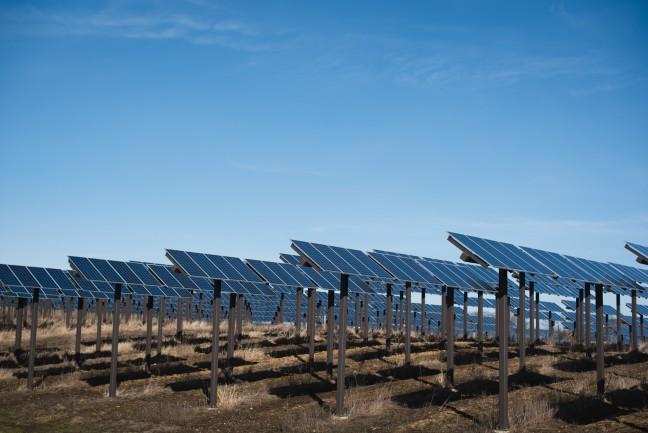Scott Williams, education manager at the Wisconsin Energy Institute, hosted the most recent installment of the bi-weekly Sustainable Energy Seminar Series on Feb. 24. The series aims to bring the newest research in sustainable energy to the public and University of Wisconsin students alike.
The seminar is held every other week in the fall and spring. Its goal is to highlight cutting-edge research at UW and beyond and to showcase how different disciplines understand energy challenges and develop solutions, Williams said.
In each installment, a guest speaker outlines their research based on an innovation or upcoming discovery in sustainability and energy.
All past seminars are available on the Sustainable Energy Seminar Series playlist on YouTube.
This seminar featured Campus Energy Advisor at the Office of Sustainability Josh Arnold and UW PhD environmental resources student Victoria Salerno. Arnold and Salerno work together with Badgervoltaics, which is a Wisconsin-oriented community of practice based on campus. The main focus of the group is the Kegonsa Agrivoltaics Pilot Project, located in Fitchburg.
Agrivoltaics is a system that combines solar and agricultural production under one system, Arnold said.
“Agrivoltaics is a win-win solution where solar arrays are planned for multiple uses in the same location,” Arnold said, “Dual-use technologies such as agrivoltaics support the goals of improving affordability, performance and value of solar technologies … optimizing a domestic manufacturing base.”
The use of agrivoltaics can reduce the cost of solar panel permitting and lower trade-offs potential for stakeholders, which would allow for better outcomes for Wisconsin’s agricultural tradition while shifting to reusable energies, like solar, Arnold said.
The solar panel array will be able to produce electricity equivalent to approximately 450-500 homes, Arnold said.
In addition to the energy produced through solar panels, the project features two different seed mixes — an internal seed mix scattered within the boundaries of the solar panel and a native pollinator seed scattered mix around the perimeter, Arnold said.
There is no shortage of related research to the site, one example being pollinator species and planetary health.
Salerno researches pollinators in relation to the Kegonsa site and works to understand the abundance, diversity and variation within the organism and landscapes.
Bee hotels, or spaces for solitary bees to nest, are a useful metric to see how bees are thriving with the use of agrivoltaics, Salerno said.
With an innovative bee hotel that Sarleno and Arnold are working to develop, Sarleno is hoping to be better able to understand the full life cycle of a bee. With this more developed information, researchers will be better able to implement agriculture and solar, mitigating possible negative effects, she said.
The BadgerVoltaics Kegonsa Project Site is set to open in the Summer of 2025, with hopes to help the Wisconsin community better understand the positive effects of agrivoltaics, Arnold said.
“Our project is really designed to help people understand and have the opportunity to walk through a solar project and see and understand firsthand how agricultural practices and research can be instrumented together with solar,” Arnold said.
The seminar can be viewed in full, with visual slides to help with comprehension here. The next seminar will take place March 8 at 3:30 p.m., registration can be found here.


